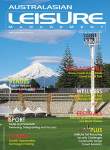Blatter: Artificial turf is the future

FIFA President Joseph S. (Sepp) Blatter has expressed his support for artificial turf and believes that one day every country will convert to playing on synthetic surfaces. His sentiments have been endorsed by the German Sport University (GSU) of Cologne, who recently reached the conclusion that "well maintained artificial turf has no measurable effect on the game."
The FIFA President gave his views on the hotly-debated topic of artificial turf following the crucial 2010 FIFA World Cup qualifier between Russia and Germany, played on a-state-of-the-art artificial pitch at the Luzhniki Stadium in Moscow.
The GSU report into synthetic pitches, led by Dr. Wolfgang Potthast, concluded that "well-maintained artificial pitches have no measurable effect on the game."
It was also discovered that data such as players' shots and crosses only differs from that of natural pitches if the artificial turf is of a poor quality, stating "with shooting it affects the standing leg, while with crossing it is the kicking leg which is affected more. Changing the surface causes a loss of accuracy and power."
The results of the report have been supported by other studies and observations, as well as by world football's governing body, FIFA.
Germany coach Joachim Low recently stated that artificial turf would be "no excuse" for a poor performance and made his players train on an artificial pitch in Mainz in order to get used to the surface.
Blatter broke his silence on the topic on a German television show 'Inside Sport', saying that artificial turf is the "future of football," as well as claiming that "most countries around the world will play on artificial turf one day because it can be used 24 hours a day, seven days a week."
Former Austrian footballer Gernot Zirngast of international players' union FIFPro was critical of the notion, asserting that qualification matches for major international tournaments should be played on grass.
Zirngast stated "it's beyond me that World Cup qualifiers are being played on artificial turf."
Zirngast also believes that a group of people from within the industry are doing their utmost to "promote artificial turf without any tangible arguments."
FIFA has developed a certification system for artificial pitches and issues certificates at a cost of around 300,000 euros for a period of three years. President Blatter has vehemently denied claims that his organisation would enforce a worldwide conversion to synthetic surfaces for financial gain, stating "that's nonsense," before going on to argue the benefits of so-called 'plastic pitches', which are intended to provide a decent playing surface to countries where the climate dictates that a grass pitch is unsustainable.
According to Blatter, the revenue generated from the licensing of the pitches will be reinvested in FIFA's own development programs, adding "we're not doing this to make money, but for the good of the game."
Sourced from Die Welt.
The adoption of artificial surfaces is a feature in the November/December 2009 issue of Australasian Leisure Management.
Click here to find out more about synthetic surface suppliers in the Australasian Leisure Management Supplier Directory.
3rd November 2008 - SPORTS LAUNCH CRITERIA FOR ARTIFICIAL TURF
6th May 2008 - FIFA FOOTBALL TURF SEMINAR
